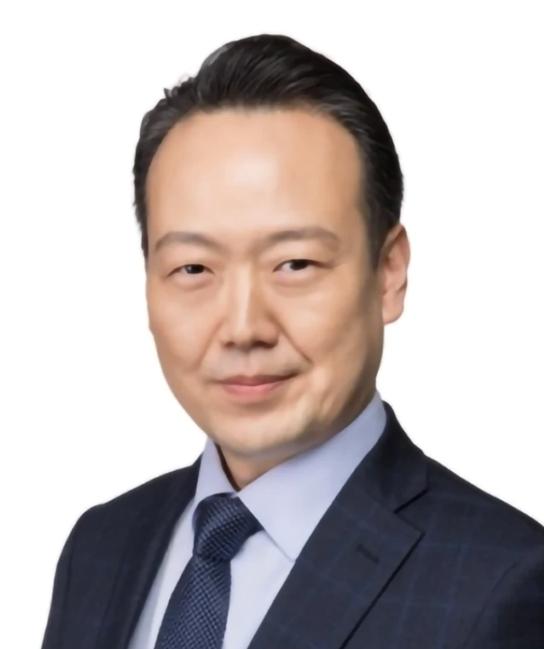On December 17, Hyundai Motor Group announced that Hyundai Motor Group China Vice President Li Heyuan will succeed Li Guangguo as president of Hyundai Motor Group (China) and be fully responsible for the operation and management of Hyundai Motor Group (China) Investment Co., Ltd. The new appointments will take effect on 1 January 2022.

According to the data, Li Heyuan graduated from the School of Economics and Management of Jilin University, and obtained an EMBA from Peking University and a doctorate degree from the Business School of Chinese Min University. Since 2001, he has served as the representative of the Beijing representative office of Hyundai Motor Corporation in South Korea, the director of the management support office of Hyundai Motor Co., Ltd., the executive deputy general manager of Hyundai Motor (China) Investment Co., Ltd., the vice president of Hyundai Motor Group in China, the chief government affairs officer, the chief strategy officer, and the chairman of Hyundai Motor Hydrogen Fuel Cell Systems (Guangzhou) Co., Ltd.
The replacement of the president of Hyundai Motor Group (China) is believed to be related to the decline in sales in the Chinese market for five consecutive years, and the departure of Li Hongpeng, the last executive in China, has become the fuse. Hyundai China's annual sales in 2017 declined 31.3% year-on-year to 785,000 units, compared with 790,000 units in 2018. In 2019, The Beijing Hyundai market sold 716,000 units, down 5.7% year-on-year, and fell to 502,000 units in 2020. Cumulative sales in the first 11 months of this year were 320,100 units, only 57.16% of the annual target of 560,000 units.
Li Hewei's succession is also related to the global layout of Zheng Yixuan, chairman of Hyundai Motor Group, who has been in office for more than a year, because compared with hyundai's sales decline in China, the deeper level is that brand factors and product layout cannot keep up with the Chinese market. Li Hequan is more in line with hyundai motor's layout in the Chinese market: since 2001, he has served Hyundai Motor's business in China, has a deeper understanding of the Chinese market, belongs to the "China Pass"; has the ability of government communication and corporate strategic planning; is familiar with joint venture management and can work closely with the Chinese side; most importantly, he is young enough to understand the impact of electrification, hydrogen fuel, urban air travel, robotics, future technology and other professional technologies on the Chinese market, and promote the healthy and sustainable development of business in China. Synchronized with hyundai Motor Group's global presence.
Of course, The task and challenges of Li Hyuk-min as president of Modern China are not easy. The rise in sales and performance cannot be achieved overnight, leaving aside the long-term planning of hydrogen fuel cells is more suitable for long-distance transportation, the most important task at present may be two: one is to boost China's import car business through Geniseys' overseas performance; the other is Hyundai's layout of pure electric vehicles in the Chinese market to cities.
For the import car business, the impact of Hyundai Motor China's import car dealer withdrawal incident on sales channels in 2016 is still there, whether it is Genissy or Paristi, even if they use the E2E direct operation model, they only control the pricing power. In the words of Li Hongpeng, vice president of Hyundai China, who recently left his post, "the model only guarantees the unity and stability of prices", and expresses deep helplessness for sales that cannot be generated due to the number of channels. Statistics as of the end of July 2021 show that the cumulative sales of Paristi in the whole year are nearly 800 vehicles; and the sales data of Genises is unknown, although there are 3 products, but only 4 stores of sales channel formats, it is difficult to hold out hope.
For the layout of pure electric vehicles in the Chinese market, Hyundai Motor is also in an embarrassing situation, because pure electric vehicles also have to face the fact that the THAAD incident has brought about a serious decline in the influence of Korean brands. The world knows the market size and technical capabilities of China's electric vehicle industry now, and the introduction of Tesla by the Chinese government can be regarded as a catfish effect to obtain a healthy and sustainable industrial development, but don't forget the requirements for Tesla's spare parts localization rate and the industrial technology upgrade behind it. Hyundai's pure electric vehicles currently use LG Chem, one of the "Royal Three Houses" of power batteries (China's independent brands use the Ningde era, while Tesla uses Panasonic), and the new E-GMP electric architecture technology is leading, and the IWAIQ series born here also has excellent endurance and performance. Let's not say that the IONIQ series is not superior to the Tesla MODEL series in terms of space and price, only that pure electric vehicle technology and power batteries, the Chinese auto industry that intends to overtake Europe and the United States in the bend will obviously not use the market again in exchange for technology that is not stronger than itself, nor will it use the market to cultivate a competitor with the same strong ability in the automobile industry, not to mention that there is also a similar national sentiment to the THAAD incident.
Therefore, it is not optimistic that after Li Heyuan takes over Hyundai Motors China, it can bring about a turning change. If so, it could only be a "non-technical" reason.